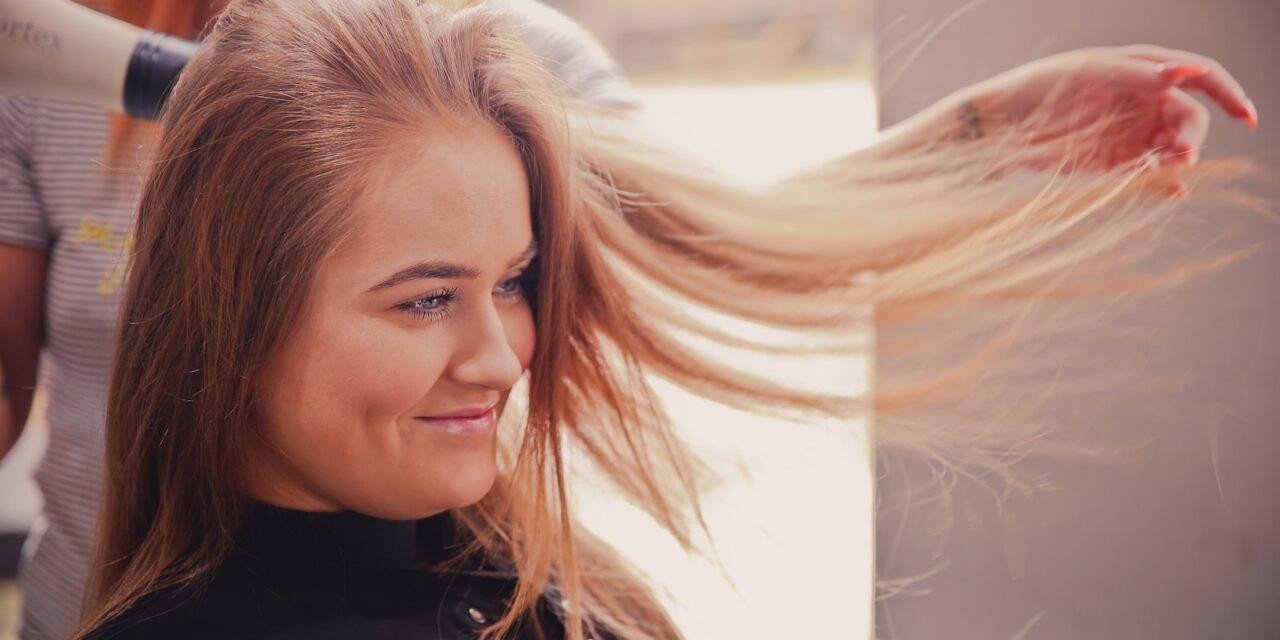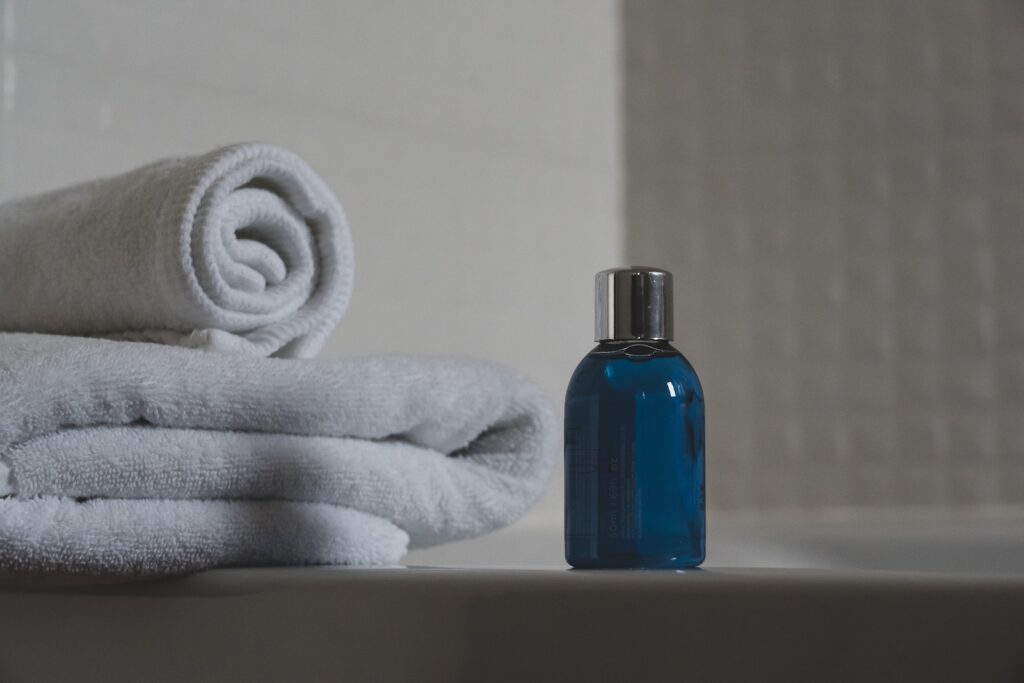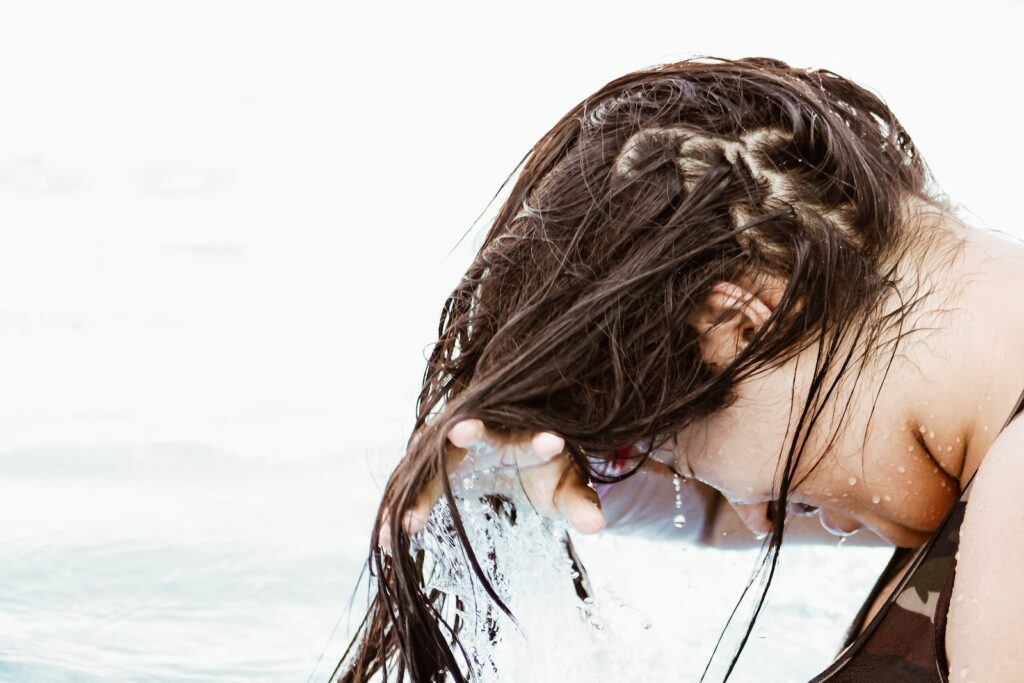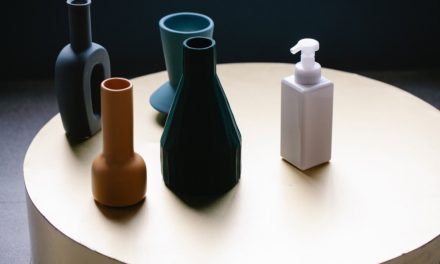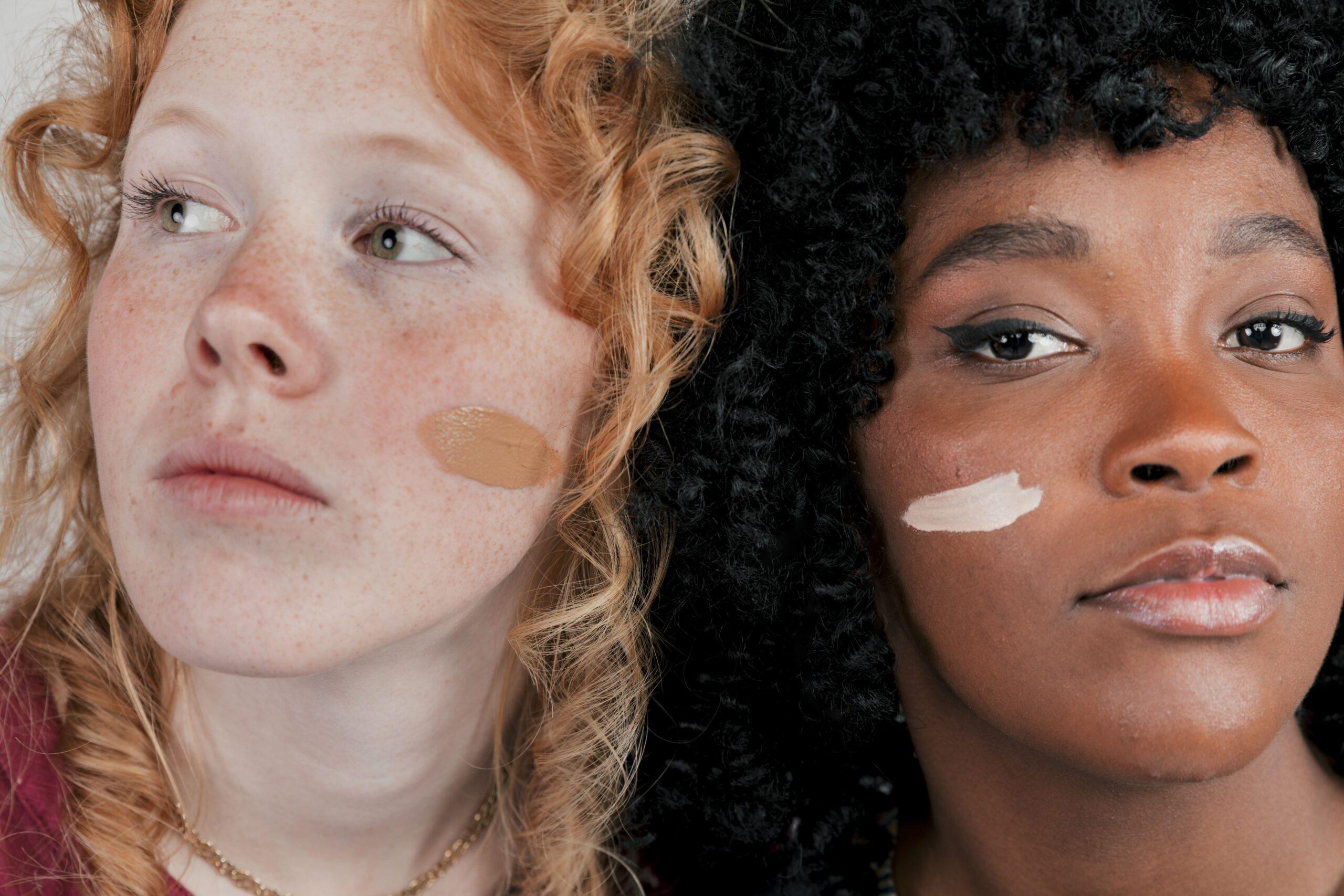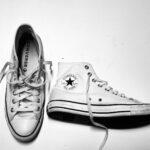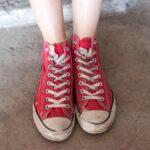In this blog post I share my experience on the truth about dry shampoo and greasy hair: does it make hair greasy? Have you ever found yourself rushing out the door in the morning without having time to wash your hair? Or maybe you’re trying to avoid washing your hair too frequently and damaging it in the process. In either case, dry shampoo may seem like the perfect solution.
It’s a quick and easy way to refresh your locks without getting them wet. However, there is a common question that arises when it comes to using dry shampoo: does it make your hair greasy?
Explanation of Dry Shampoo
Dry shampoo is a type of hair product that allows you to clean your hair without water. It typically comes in an aerosol spray or powder form and is designed to absorb excess oil and dirt from your scalp and hair strands. The main purpose of dry shampoo is to help extend the time between washes by removing oil buildup from your scalp.
Purpose of the Article
The purpose of this article is to explore whether or not dry shampoo makes your hair greasy. We will examine how dry shampoo works, why some people believe it can lead to greasiness, and offer tips for using it effectively.
Brief Overview of the Topic
While dry shampoo has become increasingly popular as a convenient way to cleanse hair without water, some people claim that using too much or leaving it on for too long can lead to greasy locks. There are various opinions on this matter, with some individuals swearing by its effectiveness while others avoid using it altogether due to concerns about its potential negative effects on their hair.
In this article, we will delve into how dry shampoo works, discuss whether or not it can make your hair greasy, and provide guidance on how best to use this product if you choose to incorporate it into your beauty routine. So put down those sudsing shampoos for now and read on!
How Dry Shampoo Works
Dry shampoo is a type of hair product that is used to absorb oils and dirt from the scalp and hair strands without requiring a full wash. It’s a great solution for those who don’t have the time or energy to wash their hair every day, or people who want to extend the life of their blowout.
The main way dry shampoo works is by absorbing excess oil, sweat, and sebum produced by the scalp. When you spray dry shampoo onto your roots, it coats each strand of hair with tiny particles of ingredients like rice starch or aluminum starch.
These ingredients work like tiny sponges, soaking up oil and dirt from your scalp. They also help to add volume and texture to your hair.
Explanation of how dry shampoo absorbs oil
Dry shampoos contain ingredients that are designed to absorb excess oil from your scalp without drying out your hair too much. These ingredients include powders like talc, cornstarch, or rice starch which effectively absorb excess oils on the scalp.
The powders in dry shampoos are made up of small particles that are able to attach themselves to the oils on your scalp and hair follicles. Once they bind with these oils, they form larger particles that can be easily brushed away from the surface of your head.
Discussion on the ingredients in dry shampoo and their functions
There are several types of dry shampoos available in the market today, each with its unique blend of ingredients that provide different benefits for users. Some common ingredients found in most dry shampoos include rice starches or aluminum starches which help reduce sebum production while absorbing moisture from sweat glands. Other common ingredients include fragrance agents such as essential oils or perfumes which can give off a fresh scent after application as well as some anti-inflammatory properties which helps soothe an itchy scalp.
Benefits of using dry shampoo
One of the most significant benefits of using dry shampoo is that it allows you to maintain your hair’s natural oils without stripping them completely. Regular use of traditional shampoos can result in the removal of essential oils and beneficial nutrients, leaving your hair feeling dry and brittle. Additionally, dry shampoos can help add extra volume and texture to your hair, making it easier to style and manage.
It’s also an effective way to prolong blowouts or styles that you’ve spent time and effort creating. Overall, the use of dry shampoo can be a great option for those who want to keep their hair healthy while reducing their styling time.
Does Dry Shampoo Make Your Hair Greasy?
The Misconception
Dry shampoos are considered a miraculous hair care product that, in recent years, has become increasingly popular for people on-the-go or those who want to extend the lifespan of their hair between washes. However, there is a misconception that dry shampoos make hair greasier over time. This concept seems contradictory because dry shampoo is designed to absorb excess oil and refresh your locks without water.
Overuse and Improper Application
The idea that dry shampoo makes hair greasy may come from people who don’t use it correctly. Overuse or improper application can lead to build-up on the scalp that ultimately causes the opposite effect of what you were going for – it makes your hair look dirtier than before! Another reason for greasiness could be due to leaving the product in your hair for too long.
Dry shampoos are meant to be sprayed onto the roots and then brushed out immediately after. If you leave it in for too long, you run the risk of clogging pores on your scalp.
The Effectiveness of Dry Shampoo
When used correctly, dry shampoo can be a lifesaver to extend time between washes or refresh oily roots. However, not all products work equally well for everyone — factors such as hair texture, thickness, color and scalp condition may affect how well certain types of dry shampoos work on different individuals. Some formulas may even cause itching or flaking if they contain ingredients like talc or baking soda that do not agree with sensitive skin.
Factors Contributing To Effectiveness
There are several factors that contribute to the effectiveness of dry shampoo. Firstly, choosing a type of dry shampoo based on your hair type can make all the difference – whether you have fine, curly or thick hair, there is a dry shampoo that will work best for you. Secondly, how often you use dry shampoo can also impact its effectiveness.
Using it too frequently may cause build up and result in greasy-looking hair. Some other factors to consider are the humidity in the environment and hair styling products used in conjunction with the dry shampoo.
It’s a common misconception that dry shampoo makes your hair greasy. As long as you follow proper application techniques and choose the right product for your hair type, it shouldn’t cause any unwanted oiliness.
However, overuse or misuse can lead to clogged pores on your scalp which could result in greasiness. It’s important to keep in mind that factors such as hair texture, thickness and scalp condition all play a role in determining whether or not a particular brand of dry shampoo works effectively for an individual.
Tips for Using Dry Shampoo Effectively
While dry shampoo can be a lifesaver for those days when you don’t have the time or energy to wash your hair, it’s important to use it correctly to avoid any potential greasiness. Here are some tips:
Proper Application Techniques
The most critical factor in using dry shampoo effectively is proper application. The key is to apply the product evenly and thoroughly throughout your roots and scalp, focusing on areas that tend to get oilier more quickly.
Start by sectioning your hair and spraying the dry shampoo about six inches away from your roots. Use your fingers or a comb to work the product through your roots and scalp, making sure every section gets coated.
Another helpful tip is applying dry shampoo at night before bedtime. This allows the product more time to absorb any excess oil while you sleep, leaving you with fresher-looking hair in the morning.
Frequency of Use
The frequency of use when it comes to dry shampoo varies depending on different factors like hair type, lifestyle, product types, etc. But generally speaking, using too much dry shampoo can create a buildup on your scalp and strands which can lead to greasiness. If you have fine or oily hair type, then using too much of it might not be a good idea.
As for people with coarse or curly hair may find they need less frequent applications as their hair doesn’t produce as much oil as straighter-haired individuals do. A good rule of thumb is no more than two consecutive days without washing your hair with regular shampoo while using dry shampoo alternately in between washes.
Choosing the Right Type of Dry Shampoo for Your Hair Type
Another important consideration is selecting the right type of dry shampoo for your hair type. Some formulas work better for certain types of hair or specific concerns such as color residue, texture, etc. If you have fine hair, choose a lightweight formula that won’t weigh your strands down.
For thick or curly hair, a more absorbent formula may be necessary to effectively soak up excess oil and product buildup. Also, if you have color-treated or highlighted hair, consider using a dry shampoo specifically created for colored locks to avoid any discoloration or fading.
The Verdict
Dry shampoo can be a convenient solution when you’re in a hurry or don’t have access to running water. With proper application techniques and careful consideration of your unique hair type and needs, this miracle-in-a-can product can help keep your tresses looking clean and healthy between washes without causing any extra greasiness.
Conclusion on Dry Shampoo and Greasy Hair
After analyzing the different factors that contribute to how dry shampoo affects hair, it is clear that it can have both positive and negative effects. While dry shampoo can be a lifesaver for those with oily hair or busy schedules, overusing or improperly applying it can lead to greasiness and build-up. One of the key takeaways of this article is that not all dry shampoos are created equal.
It’s important to choose a product that is specifically formulated for your hair type and texture. Additionally, using too much dry shampoo at once can actually cause more oil and grease buildup, so it’s important to use it in moderation.
Another important factor to consider when using dry shampoo is application technique. Ensuring that you are spraying from the correct distance and targeting the right areas of your hair can make all the difference in its effectiveness.
Ultimately, whether or not dry shampoo makes your hair greasy depends on several factors such as how often you use it, how much you use at once, and how effectively you apply it. By keeping these considerations in mind and using dry shampoo responsibly, you can enjoy its benefits without worrying about negative side effects.
So don’t hesitate to reach for your favorite bottle of dry shampoo when you’re short on time or dealing with oily roots. With proper usage and smart product selection, this haircare hero can be a gamechanger for maintaining healthy-looking locks even when you’re on-the-go.

